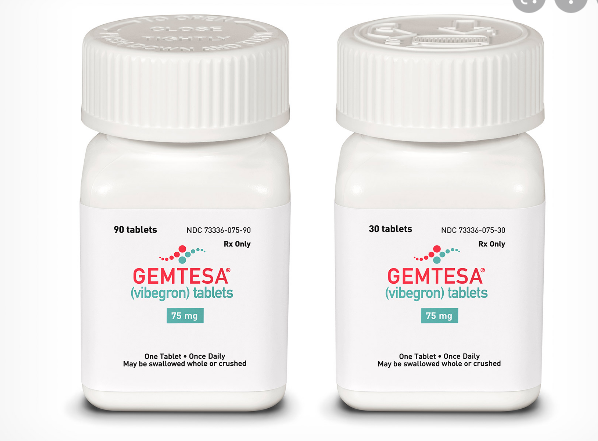IRVINE, Calif. & BASEL, Switzerland– Urovant Sciences, Inc., a wholly-owned subsidiary of Sumitovant Biopharma Ltd., announced today that the journal Advances in Therapy has published patient-perception data supporting clinical meaningfulness of overactive bladder (OAB) symptom reduction for its FDA-approved OAB therapy, GEMTESA® (vibegron), compared to placebo. The article entitled, “Interpretation of the Meaningfulness of Symptom Reduction with Vibegron in Patients with Overactive Bladder: Analyses from EMPOWUR” is available online and the print version will be published in an upcoming issue of the journal.
The analysis of 12-week data from the EMPOWUR study regarding patient perception supports that the reductions in OAB symptoms such as urinary frequency, urgency, and urinary incontinence were meaningful to patients after treatment with GEMTESA 75 mg compared with those receiving placebo. These data also were presented at sectional American Urological Association (AUA) and Urology-focused meetings this fall including SCS-AUA, NCS-AUA, ICS, NE-AUA, SUNA, and WS-AUA.
“Our findings suggest that the statistically significant improvements in bothersome symptoms of OAB seen in the 12-week EMPOWUR trial are indeed clinically relevant in terms of patient perceptions,” said lead author Jeffrey Frankel, MD, of Seattle Urology Research Center. “These significantly higher proportions of patients achieving pre-defined patient-perceived symptom improvements are likely to inform patients and providers in establishing realistic treatment goals.”
“The patient-centered analysis further supports that GEMTESA is an important treatment option with meaningful clinical benefit for patients with OAB,” said Cornelia Haag-Molkenteller, MD, PhD, executive vice president and Chief Medical Officer of Urovant Sciences. “The publication in a peer-reviewed journal is another example of Urovant’s commitment to informing the scientific – medical community about meaningful effects of GEMTESA.”


